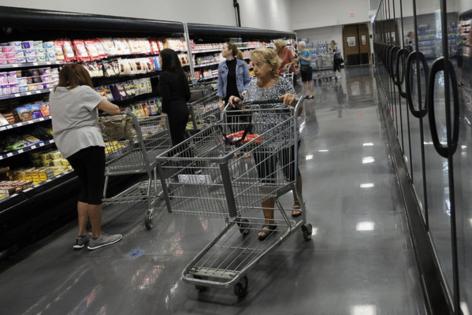US consumer confidence declines on weaker outlook for economy
Published in Business News
U.S. consumer confidence eased this month on a more muted outlook for business conditions, the job market and incomes.
The Conference Board’s gauge of sentiment decreased to 100.4 from a downwardly revised 101.3 reading in May, data out Tuesday showed. The median estimate in a Bloomberg survey of economists called for a reading of 100.
June’s measure of expectations for the next six months fell nearly 2 points to 73, while present conditions increased from a downwardly revised May reading.
Confidence has been subdued over the past few years as consumers contend with a higher cost of living, elevated borrowing costs and, more recently, a softening in the labor market. Only 12.5% of consumers expect business conditions to improve in the next six months, the smallest share since 2011.
“Confidence pulled back in June but remained within the same narrow range that’s held throughout the past two years, as strength in current labor market views continued to outweigh concerns about the future,” Dana Peterson, chief economist at the Conference Board, said in a statement. “However, if material weaknesses in the labor market appear, confidence could weaken as the year progresses.”
Concern about prices eased this month, though consumers still noted elevated prices for groceries. Inflation data for the month of May showed a broad pullback in price increases for U.S. consumers.
Consumers also pared buying plans for motor vehicles and major appliances, which are often financed. However, more respondents indicated they intend to take a vacation in the second half of the year, reflecting a pickup in domestic travel plans.
Consumers’ view of the current labor market improved slightly. Some 38.1% of consumers said jobs were “plentiful,” up from 37% in May, while fewer said jobs were “hard to get.” The difference between these two — a metric closely followed by economists to gauge labor-market strength — rose for the first time since the start of the year.
The share of respondents who think the November election will impact the economy was relatively low compared with June 2016 but slightly higher than in 2020, the survey showed.
(With assistance from Kristy Scheuble.)
©2024 Bloomberg L.P. Visit bloomberg.com. Distributed by Tribune Content Agency, LLC.







Comments